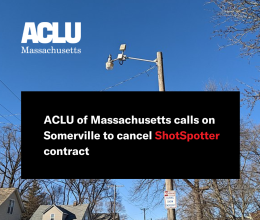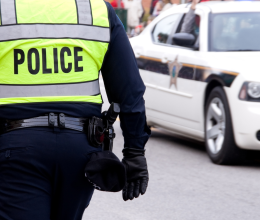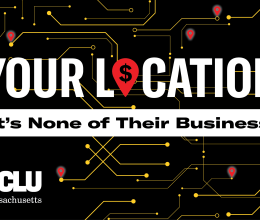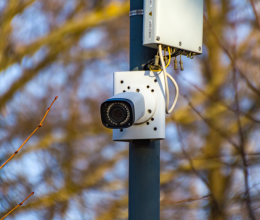
The Boston Police Department (BPD) used a social media surveillance system to conduct online surveillance over three years, explicitly targeting users’ First Amendment protected speech and association, according to a new whitepaper released by the ACLU of Massachusetts.
Based on Boston Police documents obtained through the Massachusetts Public Records Law, the ACLU of Massachusetts report finds that the BPD – using a social media surveillance system called Geofeedia – collected thousands of social media posts about political and social activism, current events, religious issues, and personal matters from January 2014 through May 2016. The documents provide no indication that the social media surveillance conducted using Geofeedia’s automated monitoring service was ever instrumental in preempting terrorism or other violence.
In a trial of Geofeedia in November 2014, the Boston Police Department used the service to monitor online speech associated with the Black Lives Matter movement in Boston, tracking terms like “protest” and “#blacklivesmatter.” Later, after contracting with the company in 2015, the BPD used Geofeedia primarily to target so-called “Islamic Extremist Terminology,” including both commonly used terms like “ISIS” and a list of Arabic words used regularly by ordinary members of Muslim communities. According to the ACLU of Massachusetts’ whitepaper, Geofeedia captured a large number of conversations about Islam itself — but no content related to any actual terrorist threat.
“Police officers are charged with protecting not only public safety but also individual rights,” said Kade Crockford, Director of the Technology for Liberty Program at the ACLU of Massachusetts, and one of the authors of the whitepaper. “Social media monitoring that turns Muslims, politically active residents, and others into ‘persons of interest’ without demonstrated utility in solving crimes accomplishes neither of these aims. We need transparency, accountability, and government and community oversight to ensure that this does not happen again.”
Over approximately 16 months and after spending more than $24,000 on Geofeedia, the Boston Police Department collected at least 1,900 social media posts from websites like Twitter and Instagram. The documents obtained by the ACLU of Massachusetts contain no evidence that Geofeedia solved crimes or prevented violence. Instead, according to the whitepaper, BPD used Geofeedia for discriminatory purposes: to track online racial justice activism in the wake of the events in Ferguson and to conductbroad surveillance of ordinary Muslims in Boston.
“This type of surveillance facilitates larger problems with 21st century policing,” said Carol Rose, executive director of the ACLU of Massachusetts. “Not only is social media monitoring ineffective at stopping terrorism and other crimes, but it enables politically motivated surveillance, facilitates digital racial profiling, and chills speech. While we are pleased that the Boston Police Department no longer uses Geofeedia, the Boston Police Department must make a clear and compelling case detailing how and why social media surveillance benefits public safety before investing in another system like this.”
Among other recommendations, the report calls on the Boston City Council to pass a surveillance oversight ordinance requiring city departments to go through a transparent, public process before acquiring new spying tools.





